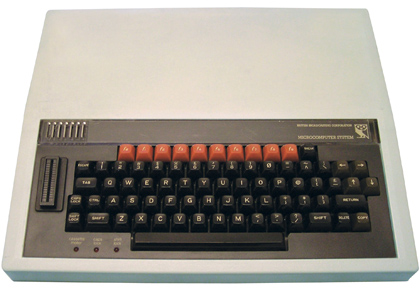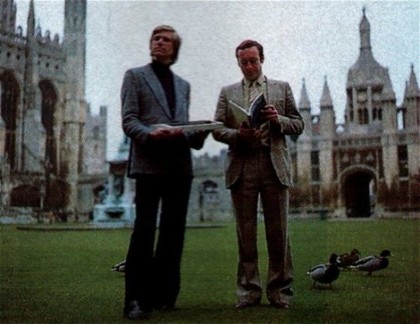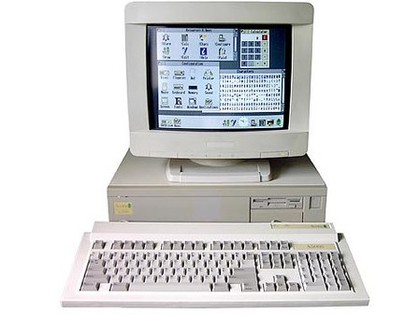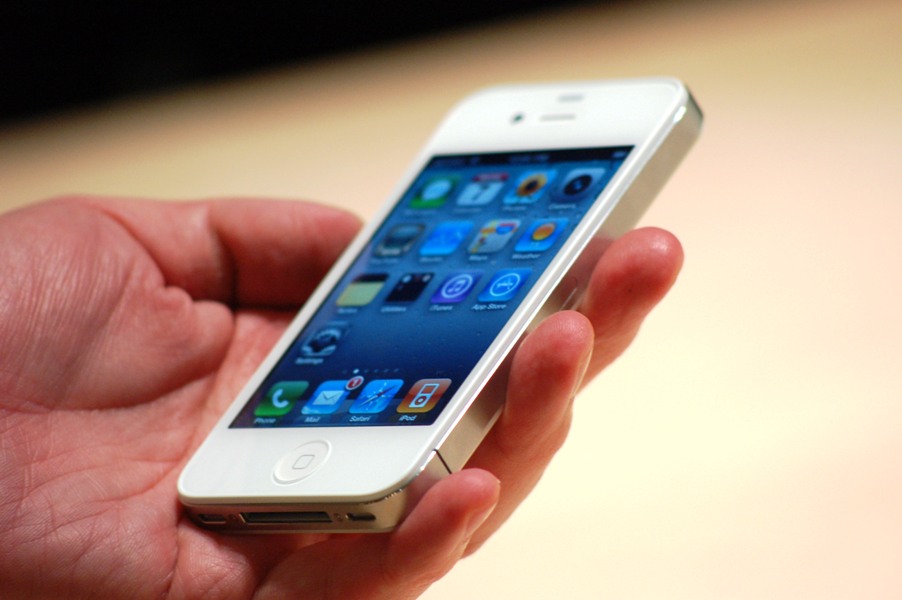The BBC Micro at 30: a very British institution
The school computer that influenced a generation - and your mobile phone

The clickety-clack keys, The Cub touchscreen monitor. The terrible beige chassis. That row of bright orange function keys at the top of the keyboard.
The BBC Micro turns 30 years old today. It was a pionnering machine - not least because you use a descendent of it every single day - your mobile phone.
So how did the BBC come to be involved in such a project? And how did the BBC Micro come to have such influence over a generation?
Let's rewind slightly. In 1975, a now defunct company called MOS Technology introduced the 6502 processor.
Technically, it was nothing special – an 8-bit chip designed by the team responsible for the Motorola 6800, and similar to it in many ways. Where it broke new ground was in its cost. With a launch price of $25, considerably less than equivalent chips from Intel and Motorola, it started a price war.
This then fuelled the home computer revolution. The 6502 first made its appearance in machines such as the Apple I and II, the Commodore PET, and the Atari.
Here in the UK, it first made its presence felt in the BBC Micro.
Sign up for breaking news, reviews, opinion, top tech deals, and more.
Introduced by Acorn in 1981 and priced at £235, the BBC-backed machine didn't have the same super-low pricing or mass market appeal as the likes of the Sinclair ZX81, but it had one important thing going for it.
Due to being featured in the BBC's Computer Literacy Project, it became established as the de facto educational computer and sold to schools by the millions. As a result, a whole generation was introduced to computing, and it was all down to the 6502.

PIONEERING: The logo of the BBCs Computer Literacy Project
But the story of the machine's makers starts a lot earlier. In 1966, Sinclair Radionics hired a man called Chris Curry, who worked for Clive Sinclair for the next 13 years.
When Curry became interested in a prototype computer from National Semiconductor, Sinclair wasn't keen – so Curry decided to set up his own computing firm, Acorn Computers, in Cambridge.
The BBC Micro and Acorn Electron went head-to-head with Sinclair's Spectrum and ill-fated QL.

FOUNDERS: Acorn's Hermann Hauser and Chris Curry [Image credit: stairwaytohell.com]
Sinclair was the brains behind the slimline pocket calculator and was also responsible hooking an entire generation on computer games. But he lost out to Acorn over the BBC deal - something which created bad blood between the companies and their founders throughout the 1980s.
This rivalry was explored by the BBC in 2009, when the corporation commissioned a comedy-drama about the saga. Called Micro Men, with Alexander Armstrong as Sinclair and Martin Freeman as Curry, it's definitely worth a watch on YouTube.
After the BBC Micro, Acorn took a bold approach: rather than basing its new computer on established processors from Intel or Motorola, it designed its own 32-bit processor called ARM (originally standing for Acorn RISC Machine, but now Advanced RISC Machine).
By adopting the Reduced Instruction Set Computer (RISC) approach at a time when most of the other semiconductor manufacturers were employing the Complicated Instruction Set (CISC) approach (today's x86 chips employ elements of both philosophies), the ARM chip was well ahead of the competition.
Despite initially having just an 8MHz clock, the first ARM-based systems were much faster than contemporary machines with Intel 80386s or Motorola 68020s, even though the latter were clocked at twice the speed.
"From its beginning the ARM CPU was small and efficient. It was clearly a CPU ahead of its time," explains Tony Massimini, chief of technology at Semico Research. "It took a lot of hard work and dedication to find the right home for ARM technology."
ARM1 chips were used as part of a BBC Micro-based development kit for the 32-bit Acorn Archimedes, the second-generation of school computers after the original Micro.
Then came the Archimedes, which used a new OS called RISC OS and, like modern-day Windows and Mac OS, used the WIMP (Windows, Icons, Menus and Pointers) system.

ACORN A5000: 1991's A5000 was ahead of its time, but Acorn was already losing to Windows PCs
However, while it was technically superior, the growing momentum of the PC clones proved its downfall, and the last Archimedes (then branded as just Acorn) was launched in 1994 - called the Risc PC.
It followed a long line of Archimedes and Acorn machines including the A5000 and the A3000 - the machine that succeeded the BBC Micro in many British schools.
Acorn's legacy
That wasn't the end of the ARM processor, though – far from it. Acorn didn't just make home computers: it also developed the RISC (Reduced Instruction Set Computer) processor and spun off ARM to market RISC chips to other firms.
Now a PLC, ARM was formed in 1990 as Advanced RISC Machines, ARM was a joint partnership between Acorn Computer, VLSI and some other company called Apple.
The chips later found their way into the cult Apple Newton, which used the ARM 610 processor.
By the turn of the century ARM dominated the portable processor market, and in recent years its chips have powered the Game Boy Advance, Nintendo DS, many PDAs and smartphones, the iPod Touch, iPad and the iPhone.
Acorn might be long gone, but it lives on in the form of its former subsidiary ARM Holdings. More importantly, so does its pioneering processor.

ARM POWER: 95 per cent of mobile phones worldwide use ARM processor cores
According to ARM, there are over 15 billion ARM-based chips in existence, powering over 95 per cent of mobile phones and over 25 per cent of all electronic devices.
All this is down to that innovative RISC design, as simplicity means low power consumption.
None of the four billion RISC cores made every year are actually manufactured by ARM. Instead, ARM licenses its intellectual property to other companies like Nvidia, Qualcomm, Apple, Samsung and more, who then incorporate it into their own designs.
Dan (Twitter, Google+) is TechRadar's Former Deputy Editor and is now in charge at our sister site T3.com. Covering all things computing, internet and mobile he's a seasoned regular at major tech shows such as CES, IFA and Mobile World Congress. Dan has also been a tech expert for many outlets including BBC Radio 4, 5Live and the World Service, The Sun and ITV News.